- Home
- Conn Iggulden
Bones Of the Hills c-3 Page 44
Bones Of the Hills c-3 Read online
Page 44
CHAPTER THIRTY-EIGHT
The rains had come at last to Samarkand, pounding on the tile roofs of the city in a constant downpour that had lasted for days and showed no sign of ceasing. The streets ran as rivers and the inhabitants could only endure. Illness spread as cesspools overflowed and added their stinking contents to standing water, some even corrupting the city wells. The air remained hot even so and Genghis abandoned the shah’s palace when a vicious new pestilence appeared. It began with vomiting and loose bowels, killing first children and the old as they grew weak. No one was safe and there was no pattern to it: in one area, hundreds would die, while no one suffered in streets all around. Chin physicians told Genghis that such a scourge could only be left to run its course.
The khan urged Arslan to leave Samarkand, but the old general refused, as was his right. The city was his. Arslan had not mentioned the first stirrings of sickness in his gut as he walked Genghis to the gates and saw them nailed shut. With the khan safe, Arslan had closed his eyes, feeling a hot iron in his bowels as he walked back to the palace through deserted streets. Genghis heard of his death just days later.
When Genghis looked at Samarkand after that, it was with fury and grief, as if the city itself were responsible. Those inside mourned the dead or joined them while the khan and his generals took shelter in the gers outside. No one died there. The families collected their water from the lakes to the north and sickness did not strike the camp.
Tsubodai was sighted as the number of deaths in the city began to fall and the air grew cool for the first time in many months. As the general drew closer, tension mounted palpably in the camp. Genghis became more and more irritable until no one dared approach him. The death of Arslan had put the final touch on a bad year and he was not sure he wanted to hear what had become of Jochi. No one had died for four days when he allowed the city to open its gates at last and burn the rotting dead. Arslan was among the corpses and Genghis sat by the funeral pyre as his oldest friend was reduced to clean ash and bones. The shamans of the nation gathered solemnly to chant the general’s soul through to the sky father, though Genghis hardly heard them. The great fires seared the air, burning away the last of the sickness. In some ways, it felt like a rebirth. Genghis wanted to put bad memories behind him, but he could not prevent Tsubodai coming home.
As Tsubodai reached the walls of Samarkand at last, Genghis waited for him in the khan’s ger, lost in dark thoughts. He looked up when the general entered through the small door and, even then, a small part of him hoped he would have failed.
Tsubodai handed the wolf’s-head sword to the khan, his eyes shadowed and showing nothing. Genghis took it almost with reverence, laying the scabbard across his lap and breathing out slowly. He looked older than Tsubodai remembered, worn thin by battle and time.
‘The body?’ Genghis asked.
‘I would have brought it back, but the heat…’ Tsubodai’s gaze fell to a rough sack he had brought with him. He had carried its withered contents for hundreds of miles.
‘I have Jochi’s head,’ he said.
Genghis winced.
‘Take it away and bury or burn it,’ he replied. ‘I do not want to see.’
Tsubodai’s eyes flashed for a moment. He was tempted to remove the head from the sacking and make the khan look at the dead face of his son. He throttled the impulse quickly, knowing it was born of exhaustion.
‘Did his men resist afterwards?’ Genghis asked.
Tsubodai shrugged.
‘Some of the Chin officers chose to take their own lives. The rest came with me, as I thought they would. They are still fearful that you will have them killed.’ He breathed deeply. ‘I made promises to them.’ Tsubodai sensed Genghis was about to speak and threw aside his caution. ‘I will not see my word broken, my lord khan,’ he said.
The two men stared at each other for a long moment, each assessing the will of the other. Finally Genghis nodded.
‘They will live, Tsubodai. They will fight again for me, yes?’ He chuckled, though it was a forced and ugly sound. The silence became uncomfortable until Tsubodai spoke again.
‘I heard of your victory.’
Genghis put aside the sword, relieved at being able to speak of mundane things.
‘Jelaudin escaped,’ he said. ‘I have scouts searching for him, but there is no sign. Do you want the task?’
‘No, lord. I have had enough of the heat. The one good thing I found in going north was in welcoming the cold again. Everything is cleaner there.’
Genghis hesitated as he considered how to reply. He sensed a great bitterness in his general and he did not know how to ease it. He recalled the worst times of his own life and knew that time alone would heal the man, rather than anything he could say. Tsubodai had obeyed his orders and he was tempted to tell him to take comfort from that.
Genghis held his tongue. The brooding general brought a subtle sense of menace into the ger and Genghis felt invisible hackles rise as he struggled for words.
‘I will move the nation to Herat in the west. One sharp blow there will restore the nerve of other cities. After that, I think I will return home for a few years. It has been too long and I am tired.’
Tsubodai tilted his head slightly and Genghis felt his temper begin to fray. The man had followed his orders and Jochi was dead. What more could he want?
‘Did you hear that Arslan died in the city?’ he asked.
Tsubodai nodded. ‘He was a great man,’ he said softly.
Genghis scowled at the calm tone.
‘Even so, it was not a good death,’ he said.
Once more, Tsubodai did not add anything to the stilted conversation and the khan’s temper came to the surface.
‘What do you want from me, Tsubodai? You have my thanks. Do you think I am pleased that this had to be done?’ Genghis glanced at the sack between Tsubodai’s feet and almost reached for it. ‘There was no other way, general.’
‘I grieve for him, still,’ Tsubodai replied.
Genghis stared at him, then looked away.
‘As you please, Tsubodai. There will be many who grieve. Jebe was his friend, as was Kachiun. His mother is distraught, but they know it was my order.’
‘Still, I am the man who killed the khan’s son,’ Tsubodai said grimly.
Genghis shook his head.
‘He was not my son,’ he said, his voice hard. ‘Put this aside and ride with me to Herat.’
Tsubodai shook his head.
‘You do not need me for that.’
Genghis crushed the swelling sense of anger at the man. He barely understood Tsubodai’s pain, but there was a debt to be repaid and he realised the general could not simply return to the nation.
‘Once more then, Tsubodai,’ he said, his voice hard. ‘For your service, I ask. What do you want from me?’
Tsubodai sighed. He had hoped to find peace when he gave the sword and head to the khan. It had not come.
‘Let me take tumans to the north once more, into the clean cold. I will win cities for you there and wash away what I have done.’
Tsubodai bowed his head at last, staring blankly at the wooden floor as Genghis considered. Jebe had been planning a raid to the north before Jelaudin’s army had attacked at Panjshir. In normal times, Genghis would have sent the two generals away without a thought. The sick misery he saw in Tsubodai troubled him deeply, in part because he felt it himself, but resisted. He had revenged the insults of small kings. The shah was dead, with all but his oldest son, and Genghis had scorched cities from east to west. He searched for a victor’s satisfaction, but could not find it. Somehow, Jochi’s betrayal and death had poisoned the simple pleasures.
After an age, Genghis nodded.
‘Very well, Tsubodai. Take Jebe and Jochi’s men. I would have had to send them far anyway, to have them relearn the discipline I expect of those who follow me.’
Tsubodai raised his eyes from the floor, the warning not lost on him.
‘I am loyal, l
ord. I have always been loyal to you.’
‘I know it,’ Genghis said, gentling his tone with an effort. He knew he did not have the lightness of touch that Kachiun would have brought to the meeting. Genghis rarely thought how he ruled men like Tsubodai, as able as any he had known. In the stillness of the ger, he felt an urge to ease the general’s grief with the right words.
‘Your word is iron, Tsubodai, take pride in that.’
Tsubodai rose and made a stiff bow. His gaze lingered on the sack before he lifted it onto his shoulder.
‘I have to, lord,’ he said. ‘It is all I have left.’
Herat lay almost five hundred miles to the south and west of Samarkand, with two wide rivers and a dozen smaller ones in between. With the gers of the nation on carts, Genghis chose to approach the fortress city from that direction rather than go back to the mountains around Panjshir and strike west through the maze of valleys and hills. Tsubodai and Jebe had gone north from Samarkand, taking Jochi’s tuman and a dark shadow with them. The story of that hunt and death was whispered in a thousand gers, but never when the khan was able to hear.
It was more than two months before the families sighted the orange stone of Herat, a city by a river. It rose from an outcrop of granite and, to Mongol eyes, it was impossibly ancient. On the first raids into the area, Herat had surrendered without bloodshed, preserving the lives of the inhabitants in exchange for tribute and occupation. Kachiun had left a garrison of just eighty men and then forgotten about Herat until the city expelled them, made rash by Jelaudin’s victories.
As Genghis approached it for the first time, he began to appreciate the sheer mass of the fortress. It was built as a square on top of a rock, the walls rising more than a hundred feet from the rugged base, with great round towers set into them at each corner and along their length. He counted twelve towers, each as large as the single one that had sheltered the people of Parwan. It was a huge construction, able to give shelter to thousands racing in ahead of the tumans. Genghis sighed to himself at the sight, knowing from experience that there would be no quick victory. As with Yenking and Yinchuan, he would have to surround it and wait for them to starve.
The gates of the fortress were shut against him, but Genghis sent officers and interpreters to demand surrender as the tumans began to make camp. No answer came and Genghis barely listened as the officers raised a white tent just out of arrow shot. He did not know if the people of Herat knew his rituals and did not care. The white tent would stand for a day, followed by its red twin and then the black cloth that signalled utter destruction for anyone inside the fortress.
It was another two days before the catapults were assembled in front of the walls and the people of Herat remained silent. Genghis wondered if they trusted in their walls or simply understood that he could not accept a peaceful surrender a second time. He waited tensely until the first stones flew, skipping off the orange walls with just a blurred mark to show where they had struck.
The black tent fluttered in the breeze and Genghis relaxed, settling himself for a long siege as he had done many times before. It was his least favourite method of war, but such fortresses had been made to keep out armies like his own and there was no quick solution.
For the nation in the gers, life went on around Herat, punctuated by the rhythmic crack of catapults through each night and day. The families watered their animals at the river, content to leave the destruction of the city to the warriors. The rains had brought sweet grass, though it was already withering in places as the sun beat down. Such concerns were old to them and, if the city did not fall quickly, they would send the herds out to the furthest grazing, leaving the closest hills to be cropped last.
Genghis rested, his wounds having faded to pale scars on his legs and arms. He did not think of Jochi, except with relief that the betrayal had been brought to an end. After Tsubodai had left, the khan had seemed invigorated, willing to fall on Herat with the nation and begin again. His shoulder had healed over time and he rode every day to strengthen his body, ignoring the aches and pains of age. He had sent Chagatai and Kachiun to besiege the city of Balkh in the east, but the main strength of the nation had come with him to the fortress and he took heart from the sight of the encampment. His wife Borte had not spoken to him since she heard the fate of Jochi, but he was oblivious to that. The world lay at his feet and he was strong as he waited for Herat to fall.
In the fourth month of the siege, Genghis was hunting with senior officers around the base of the city. After so long in one place, there were few living things that had escaped the pots of the families. Just a few rabbits remained and they were wary survivors, long used to running from the sound of horse or man.
Balkh had fallen two months before and his tumans had slaughtered the inhabitants, pulling down the stones of the city walls. Only Herat still held out and Genghis was tired of the siege and the hot lands. He had become hopeful of a quick ending when Kachiun and Chagatai returned, but the fortress at Herat was one of the strongest they had ever tried to break.
As the season passed, Genghis had moved his catapults three times, concentrating their stones on flat sections of the walls. Cracks had appeared to great jubilation in the camp, but he sometimes felt he was assaulting a mountain, with as much effect. The walls stood, battered and marked in a thousand places. By then, Genghis knew starvation and thirst would break the city, but he kept his siege weapons working.
‘When this is done, we will go home,’ Genghis muttered to himself, looking up at the walls.
Kachiun and Khasar had heard it a hundred times before from their brother and merely exchanged a glance. A rabbit darted out from cover far ahead of them and all three kicked in their heels to chase it down. Over the noise of hooves, Genghis heard a sharp cry above his head and looked up. There was always someone staring down at his camp from the walls, but this time he saw a man had leaned out too far. The luckless watcher had barely caught himself and now clung to the outer edge by his fingertips. Genghis whistled to his brothers, pointing as the man shouted for help above their heads.
Khasar and Kachiun returned, staring up with interest.
‘A wager?’ Khasar asked. ‘Two horses that he will fall?’
‘Not from me, brother,’ Genghis replied.
There were others reaching down to drag the man back to safety, but he gave a cry of despair as he felt his hands slip. Genghis and his brothers watched in fascination as he tumbled, shrieking as he went. For an instant, it seemed as if an arched stone window might save him. His hands caught on its ledge, but he could not hold on. The brothers winced as he struck the wall again, falling outwards onto the rock base of the fortress. The body spun loosely and came to rest not far away from Genghis. To his astonishment, Genghis saw an arm flail.
‘He’s alive!’ he said.
‘For a few heartbeats, perhaps,’ Khasar replied. ‘That fall would kill anyone.’
Genghis and his brothers trotted over to where the man lay. One of his ankles was clearly broken, the foot twisted. His body was a mass of scrapes and cuts, but he blinked in terror at the generals, unable to believe he had survived.
Khasar drew his sword to finish the man, but Genghis held up a hand.
‘If the spirits won’t kill him after that, we won’t be the ones to do it.’ He looked up in awe at the distance the man had fallen, before addressing the man in halting Arabic.
‘You have incredible luck,’ Genghis said.
The man cried out as he tried to move and he too stared up at the walls above his head.
‘It does not… feel like luck,’ he replied.
Genghis grinned at him.
‘Get him to a healer, Khasar. When his wounds are bound, give him a good mare and whatever else he wants.’
More men could be seen now on the walls as they stared and leaned out, some of them almost as far as the man who now lay at Genghis’ feet.
‘When the city falls, you will know how lucky you truly are,’ the khan said in his own t
ongue. The man looked blankly at him as Khasar dismounted to help him into the saddle.
The walls of Herat slumped and fell in the sixth month of the siege. One of the towers collapsed with the section, crashing to the rocks below and leaving a gaping hole into the city. The tumans gathered quickly, but there was no resistance. As they entered Herat, they found the streets and buildings already choked with the dead and dying. Those who still lived were brought out onto the plain and made to kneel for binding. That task alone took many days as the fortress had been packed with men, women and children. Temuge gave his servants the task of numbering the prisoners on wax slates, putting the total at a hundred and sixty-three thousand, with almost half as many dying of thirst or hunger in the siege. In their fear and despair, they cried and moaned as they were bound for execution, the sound travelling far across the gers. The warriors of the khan searched every room, hall and basement of the city until it was just an empty shell filled with the dead. The smell of a city after a siege was like nothing else and even hardened warriors gagged as they brought out rotting bodies.
It was sunset by the time Temuge was satisfied with his tally and Genghis decreed the killing would begin at dawn. He retired to the khan’s ger to eat and sleep, but his wife Chakahai sought him out as the darkness gathered. At first, she said nothing and he welcomed her presence. She worked the iron stove, making tea and heating pouches of unleavened bread, mutton and herbs that she had prepared that morning. He did not see the strain she hid from him, though as she passed him a plate of the pouches, he took her hand and felt her quiver.
‘What is it?’ he asked.
She bowed her head. She knew he would respond best to bluntness, but her heart beat so quickly that she could barely breathe. She knelt before him and he put aside his hunger, intrigued.
‘Husband, I have a favour to ask,’ she said.
Genghis reached out and took her hand in his.
‘Ask, then,’ he replied.
Chakahai forced herself to take a slow breath.
‘The women and children,’ she said. ‘Let them go free. They will take word of the city falling. They…’

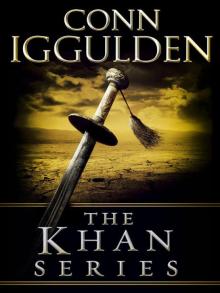 The Khan Series 5-Book Bundle
The Khan Series 5-Book Bundle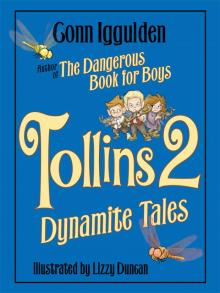 Tollins 2: Dynamite Tales
Tollins 2: Dynamite Tales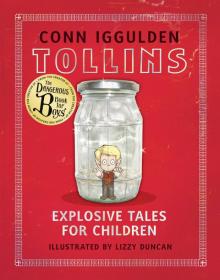 Tollins: Explosive Tales for Children
Tollins: Explosive Tales for Children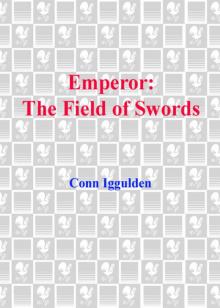 The Field of Swords
The Field of Swords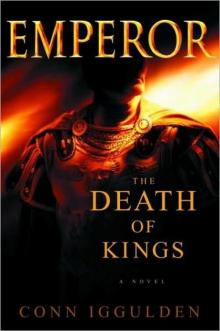 The Death of Kings
The Death of Kings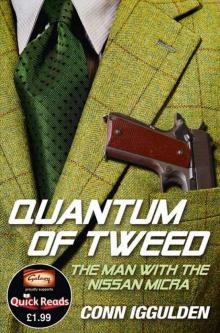 Quantum of Tweed: The Man With the Nissan Micra
Quantum of Tweed: The Man With the Nissan Micra Bones of the Hills
Bones of the Hills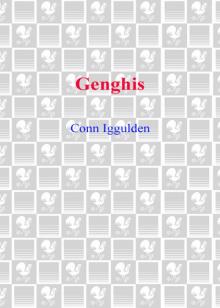 Genghis: Birth of an Empire
Genghis: Birth of an Empire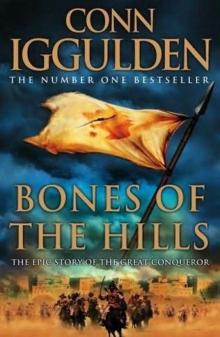 The Gates of Rome
The Gates of Rome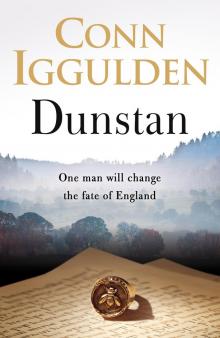 Dunstan
Dunstan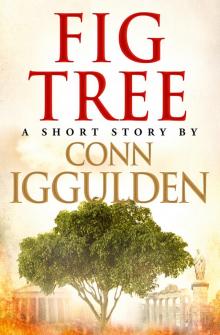 Fig Tree
Fig Tree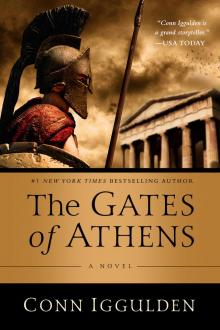 The Gates of Athens
The Gates of Athens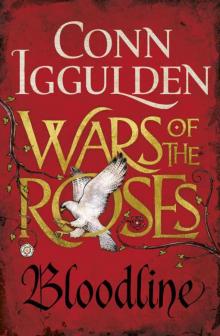 Stormbird
Stormbird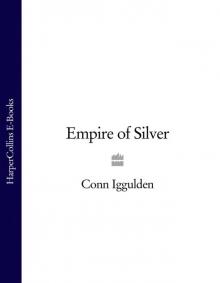 Khan: Empire of Silver
Khan: Empire of Silver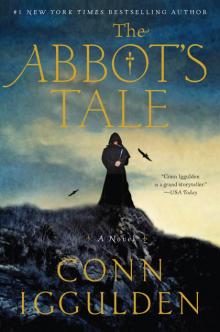 The Abbot's Tale
The Abbot's Tale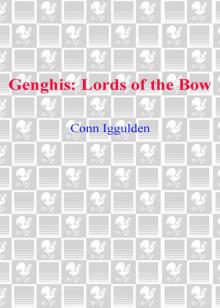 Gengis: Lords of the Bow
Gengis: Lords of the Bow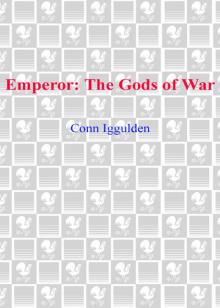 The Gods of War
The Gods of War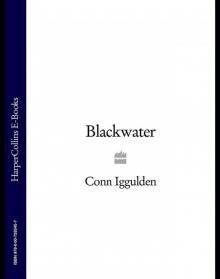 Blackwater
Blackwater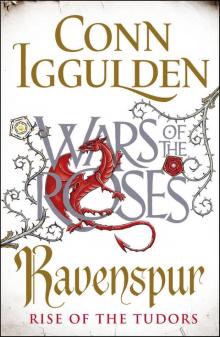 Ravenspur: Rise of the Tudors
Ravenspur: Rise of the Tudors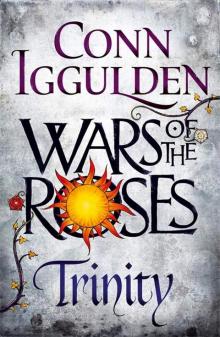 Wars of the Roses: Trinity (War of the Roses Book 2)
Wars of the Roses: Trinity (War of the Roses Book 2)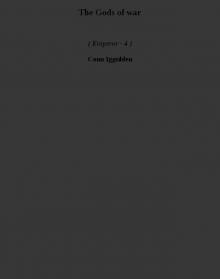 The Gods of war e-4
The Gods of war e-4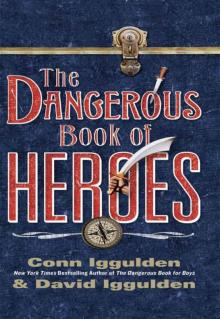 The Dangerous Book of Heroes
The Dangerous Book of Heroes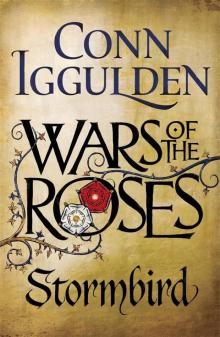 Stormbird wotr-1
Stormbird wotr-1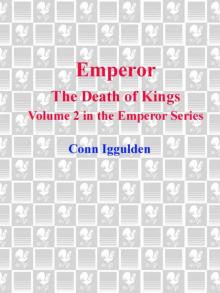 Emperor: The Death of Kings
Emperor: The Death of Kings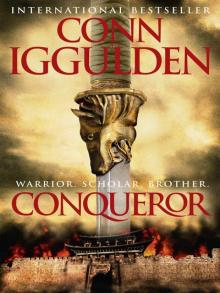 Conqueror (2011) c-5
Conqueror (2011) c-5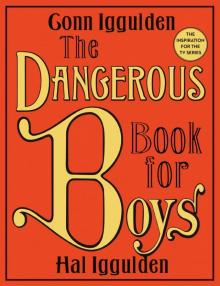 The Dangerous Book for Boys
The Dangerous Book for Boys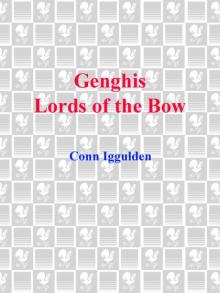 Genghis Lords of the Bow
Genghis Lords of the Bow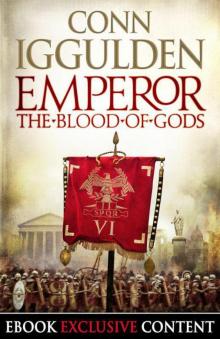 Emperor: The Blood of Gods (Special Edition) (Emperor Series, Book 5)
Emperor: The Blood of Gods (Special Edition) (Emperor Series, Book 5)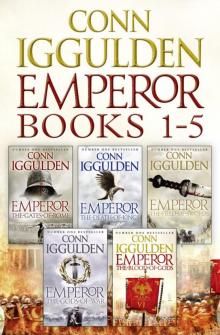 The Emperor Series: Books 1-5
The Emperor Series: Books 1-5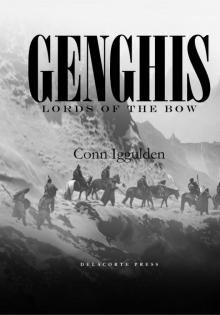 Lords of the Bow c-2
Lords of the Bow c-2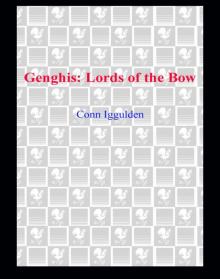 Lords of the Bow
Lords of the Bow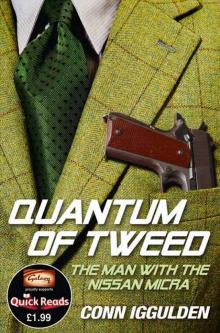 Quantum of Tweed
Quantum of Tweed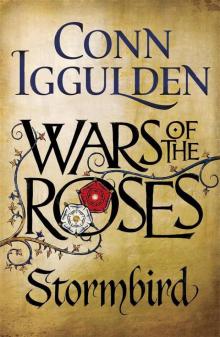 Wars of the Roses 01 - Stormbird
Wars of the Roses 01 - Stormbird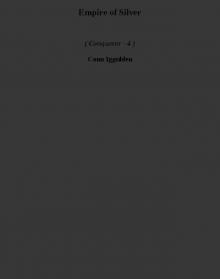 Empire of Silver c-4
Empire of Silver c-4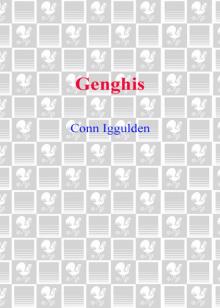 Birth of an Empire
Birth of an Empire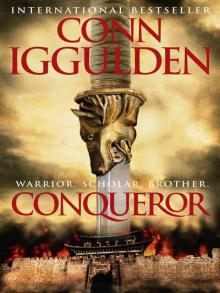 Conqueror (2011)
Conqueror (2011)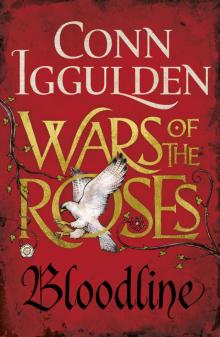 Wars of the Roses: Bloodline: Book 3 (The Wars of the Roses)
Wars of the Roses: Bloodline: Book 3 (The Wars of the Roses)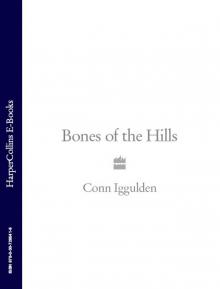 Bones Of the Hills c-3
Bones Of the Hills c-3 Empire of Silver
Empire of Silver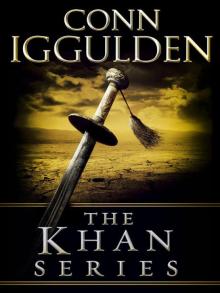 The Khan Series 5-Book Bundle: Genghis: Birth of an Empire, Genghis: Bones of the Hills, Genghis: Lords of the Bow, Khan: Empire of Silver, Conqueror
The Khan Series 5-Book Bundle: Genghis: Birth of an Empire, Genghis: Bones of the Hills, Genghis: Lords of the Bow, Khan: Empire of Silver, Conqueror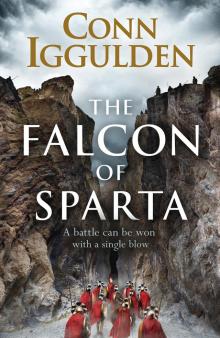 The Falcon of Sparta
The Falcon of Sparta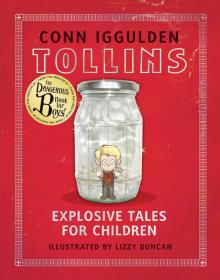 Explosive Tales for Children
Explosive Tales for Children